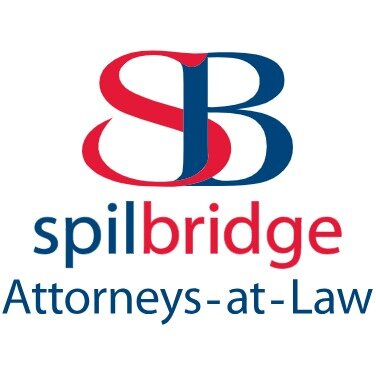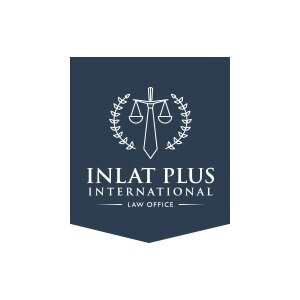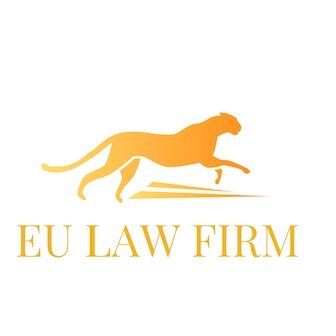Best Restructuring & Insolvency Lawyers in Latvia
Share your needs with us, get contacted by law firms.
Free. Takes 2 min.
Or refine your search by selecting a city:
List of the best lawyers in Latvia
About Restructuring & Insolvency Law in Latvia
Restructuring and insolvency law in Latvia encompasses the legal framework dealing with financially distressed companies and individuals, offering mechanisms to either rehabilitate struggling businesses or manage orderly liquidation when revival is not possible. The system is designed to protect the interests of creditors, debtors, and wider stakeholders within the Latvian economy by facilitating fair and transparent procedures. Both restructuring (out-of-court or court-supervised solutions to financial difficulty) and insolvency (formal declaration of inability to pay debts) are provided for under Latvian law, ensuring that insolvency does not lead to chaos or disproportionate losses.
Why You May Need a Lawyer
There are numerous situations where expert legal guidance in restructuring and insolvency becomes indispensable. If you are facing overwhelming debts as a business owner or individual and are unsure how to proceed, a lawyer can clarify your options and obligations. Creditors seeking to recover debts from insolvent entities will benefit from legal assistance in securing their claims and navigating court procedures. Additionally, those involved in business transactions with entities showing signs of financial distress require legal insight to mitigate risks. Lawyers are also essential if you need to challenge or defend creditor claims, negotiate payment plans, or participate in restructuring negotiations. The complexity of applicable laws and the substantial consequences of mishandling insolvency mean that professional advice is highly recommended.
Local Laws Overview
Latvian restructuring and insolvency matters are primarily regulated by the Insolvency Law and related legislation. The law sets out specific procedures for the initiation of restructuring (also known as legal protection proceedings) and for declaring insolvency. Key principles include the prioritization of creditor interests, the possibility for business rescue through restructuring, and the promotion of transparency during the process. There are also strict time limits for filing applications and providing necessary documentation. For companies, legal protection proceedings aim to allow businesses to reorganize and survive if possible. For both individuals and companies, bankruptcy and liquidation are handled through special court procedures, overseen by appointed administrators. The State Revenue Service and the Register of Enterprises play regulatory roles in oversight and administration.
Frequently Asked Questions
What is the difference between restructuring and insolvency in Latvia?
Restructuring refers to legal proceedings that allow distressed companies to reorganize their debts and continue operations, while insolvency typically refers to situations where an entity is unable to meet its financial obligations and may undergo liquidation.
Who can initiate insolvency proceedings?
Insolvency proceedings can be initiated by the debtor themselves or, under certain conditions, by creditors who are owed payment and have met legal requirements for application.
What are legal protection proceedings?
Legal protection proceedings are a form of court-supervised restructuring available to companies facing temporary financial difficulties, with the aim of restoring solvency and avoiding bankruptcy.
What happens to a business during insolvency proceedings?
The control of business assets typically transfers to an appointed insolvency administrator, who manages the liquidation of assets and the satisfaction of creditor claims according to the statutory order of priority.
Are there out-of-court restructuring options in Latvia?
Yes, Latvian law permits out-of-court agreements between debtors and creditors, though official legal protection proceedings offer mechanisms for restructuring with broader creditor involvement and court oversight.
How are creditors’ interests protected?
The insolvency process involves strict regulations regarding the order and method of creditor claim satisfaction. Creditors can participate in meetings, vote on certain decisions, and challenge incorrect actions.
What information must be provided when filing for insolvency?
A debtor must provide comprehensive documentation regarding assets, liabilities, creditors, and financial statements. Incomplete or incorrect submissions may delay proceedings or attract liability.
How long does the insolvency process take?
The duration varies depending on the case complexity, but typically, insolvency cases for legal entities can last from several months to a few years, with various reporting and procedural milestones.
What are the consequences of insolvency for company directors?
Directors have legal obligations to act in the creditor's best interests during financial distress. Failing to meet these duties may lead to personal liability or disqualification from future company management.
Can individuals declare personal bankruptcy in Latvia?
Yes, individuals (natural persons) may initiate insolvency proceedings if they are unable to meet their debts, with specific procedures and obligations outlined in the Insolvency Law.
Additional Resources
For those seeking further information or support, the following entities may be useful:
- The Register of Enterprises of the Republic of Latvia (for public records and guidance) - The State Revenue Service (monitoring and regulation information) - The Latvian Insolvency Control Service (provides oversight and guidance on professional conduct of administrators) - The Latvian Bar Association (to find qualified legal professionals) - Consumer Rights Protection Center (for individuals needing assistance regarding personal debts)
Next Steps
If you are experiencing financial distress or facing insolvency issues in Latvia, it is advisable to seek legal advice as early as possible. Start by gathering all relevant financial documentation and clarifying your current situation. Contact a qualified Latvian lawyer who specializes in restructuring and insolvency for an initial consultation. They can evaluate your case, explain your options, and guide you through the necessary legal procedures to protect your rights and interests. Consulting reputable organizations or regulatory bodies can also provide additional support and guidance throughout the process.
Lawzana helps you find the best lawyers and law firms in Latvia through a curated and pre-screened list of qualified legal professionals. Our platform offers rankings and detailed profiles of attorneys and law firms, allowing you to compare based on practice areas, including Restructuring & Insolvency, experience, and client feedback.
Each profile includes a description of the firm's areas of practice, client reviews, team members and partners, year of establishment, spoken languages, office locations, contact information, social media presence, and any published articles or resources. Most firms on our platform speak English and are experienced in both local and international legal matters.
Get a quote from top-rated law firms in Latvia — quickly, securely, and without unnecessary hassle.
Disclaimer:
The information provided on this page is for general informational purposes only and does not constitute legal advice. While we strive to ensure the accuracy and relevance of the content, legal information may change over time, and interpretations of the law can vary. You should always consult with a qualified legal professional for advice specific to your situation.
We disclaim all liability for actions taken or not taken based on the content of this page. If you believe any information is incorrect or outdated, please contact us, and we will review and update it where appropriate.
Browse restructuring & insolvency law firms by city in Latvia
Refine your search by selecting a city.
















